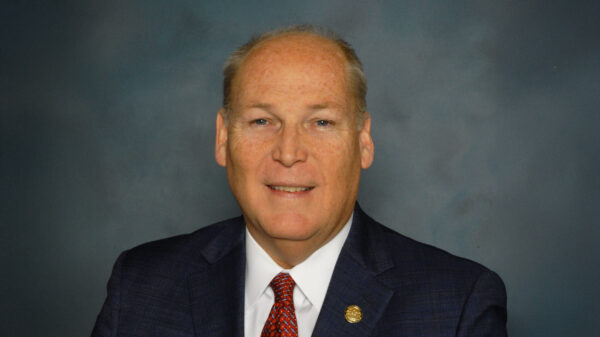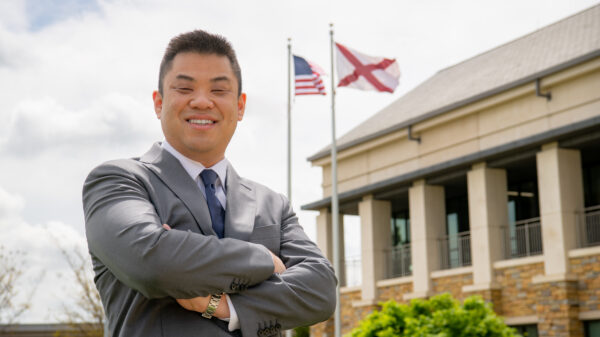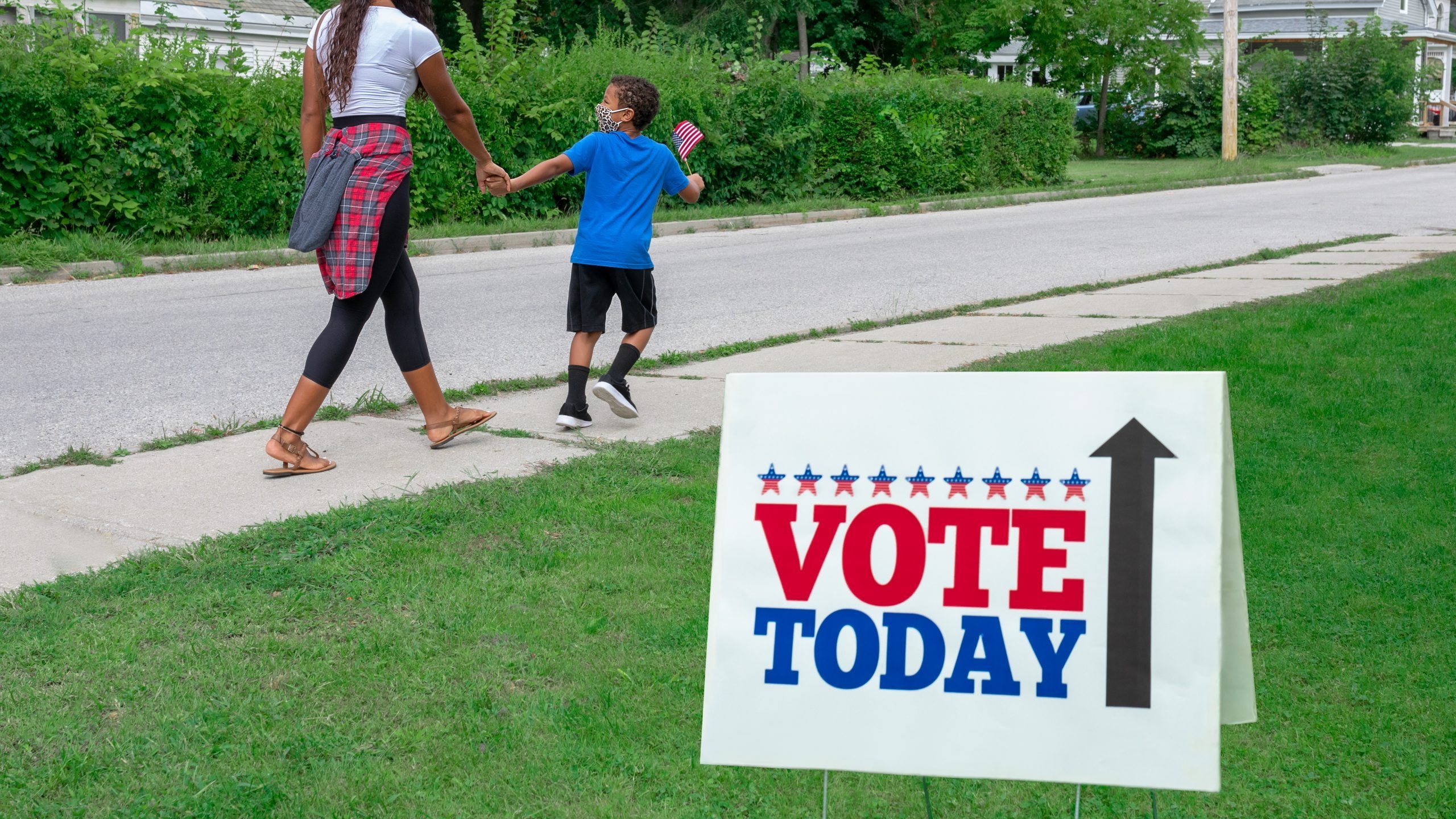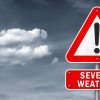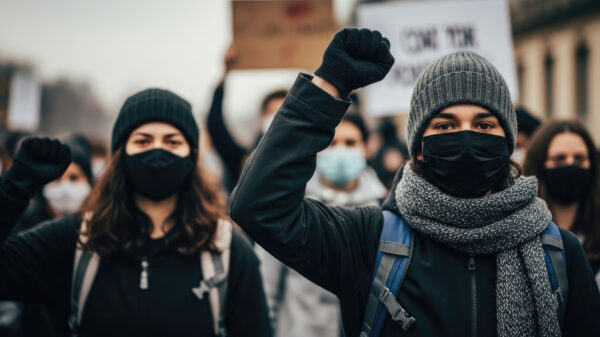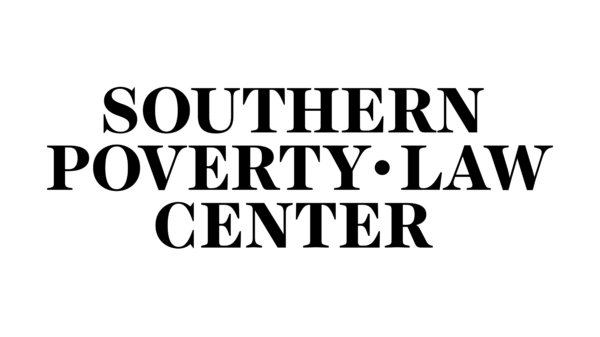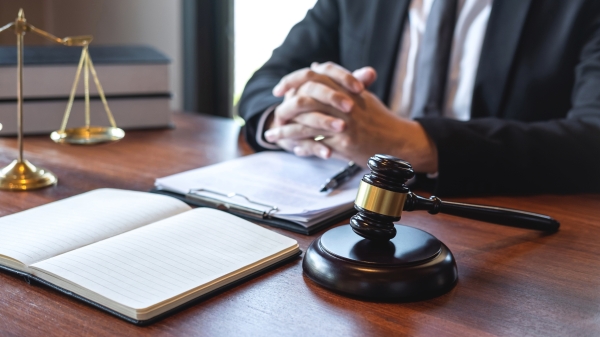The Black Voters Matter Fund isn’t giving up on Black voters having their say in the November election in Alabama. In fact, the group is working to ensure that Black voters can and do turn out to vote in greater numbers than ever before in the 2020 general election.
“When you don’t vote, you give away your power,” said Arnee Odoms, Alabama state coordinator for Black Voters Matter. “And your vote is a sense of agency. You’re giving someone agency over your everyday life.”
This month, the group launched radio advertisements and voter outreach caravans to engage Black voters and drive voter turnout. The ads will air across multiple states through Nov. 2, the group says, and will encourage Black voters to “reclaim your power, use your voice, and vote … because we matter.”
The outreach effort is taking place across a dozen states, including Alabama, and the group is leading a van caravan that will stop in Alabama and a number of other Southern states as part of the organization’s ”We Got The Power” campaign. It will come through several cities in the Black Belt, leading an in-person absentee voting parade to increase registration and voter turnout.
Half of voters already believe it will be difficult to vote in this year’s election, and voter I.D. laws, strategic closing of polling locations in predominantly Black communities, disenfranchisement of those with felony convictions among other voting restrictions in a post-Shelby Co. v. Holder election landscape add little confidence.
Alabama — described by the Southern Poverty Law Center as “a microcosm of the multi-pronged assault on the right to vote in this country” — was recently sued by civil liberties groups including the Southern Poverty Law Center and the ACLU over a “de facto ban” of curbside voting and photo ID and witness requirements for absentee ballots, requirements that disproportionately affect older voters, voters with disabilities and Black voters.
A federal judge on Wednesday ruled in favor of the plaintiffs in that lawsuit, ordering Alabama to make changes to its strict voter requirements ahead of the election because of COVID-19 concerns.
[visual-link-preview encoded=”eyJ0eXBlIjoiaW50ZXJuYWwiLCJwb3N0Ijo5OTIyMSwicG9zdF9sYWJlbCI6IlBvc3QgOTkyMjEgLSBKdWRnZSBvcmRlcnMgQWxhYmFtYSB0byBjaGFuZ2Ugdm90ZXIgcmVxdWlyZW1lbnRzIG92ZXIgQ09WSUQtMTkgY29uY2VybnMiLCJ1cmwiOiIiLCJpbWFnZV9pZCI6NTUzMDEsImltYWdlX3VybCI6Imh0dHBzOi8vd3d3LmFscmVwb3J0ZXIuY29tL3dwLWNvbnRlbnQvdXBsb2Fkcy8yMDE4LzA4L0Fkb2JlU3RvY2tfMTIwNjk3NDY5LWUxNTM1MzIwODExNTcxLTEwMDB4NjAwLmpwZWciLCJ0aXRsZSI6Ikp1ZGdlIG9yZGVycyBBbGFiYW1hIHRvIGNoYW5nZSB2b3RlciByZXF1aXJlbWVudHMgb3ZlciBDT1ZJRC0xOSBjb25jZXJucyIsInN1bW1hcnkiOiJJbiBoaXMgMTk3LXBhZ2UgcnVsaW5nLCB0aGUganVkZ2Ugd3JvdGUgdGhhdCDigJx0aGUgcGxhaW50aWZmcyBoYXZlIHByb3ZlZCB0aGF0IHRoZWlyIGZlYXJzIGFyZSBqdXN0aWZpZWQu4oCdIiwidGVtcGxhdGUiOiJ1c2VfZGVmYXVsdF9mcm9tX3NldHRpbmdzIn0=”]
One of the plaintiffs in that lawsuit is Black Voters Matter, a nonprofit created by two Alabama natives, political strategist Cliff Albright and community organizer LaTosha Brown. The fund’s most significant work deals directly with voter disfranchisement in predominately Black communities in Alabama’s Black Belt.
“Black Voters Matter was created to fund grassroots organizations, mostly Black, who would not normally receive funding to address issues of voting and other things in their own community,” Odoms said. “We do a lot of work around just organizing everyone and anything: COVID-19 responses, disaster relief in Mobile. It’s really a multi-faceted fund.”
Black Voters Matter operates in 10 states throughout the country, including Alabama and neighboring Georgia and Florida. Hundreds of thousands of grant dollars go to smaller local non-profits and grassroots organizations in Black communities in Alabama, primarily in the Black Belt, that lack the funding to continue their work.
“They are not equipped with the resources to complete the strenuous process of a grant,” Odom said. “We try and make the process as simple as possible for them, so we can get the funds out to them, and they can do work in their community.”
A city that Black Voters Matter impacted during the last election cycle is Tuskegee, where Black Voters Matter has been present on the ground for two election cycles.
“[During] the last election cycle they were very helpful in terms of getting financial resources to us,“ said Norma Jackson, councilwoman-elect in Tuskegee’s 1st district and a spokeswoman for the fund. “So that we could put young people on the ground to do door-to-door canvassing and voter registration.”
Black Voters Matter continues to help turnout efforts in Tuskegee, providing funds that directly aid canvassing, phone banking and voter registration in the Black community even amid COVID-19.“ We realize it is COVID-19 season, [and we] can’t do things in the traditional way that we’ve done them, but they will be knocking on doors with their masks and gloves and finding out who needs to get registered,” Jackson said.
Jackson also pointed to the social media visibility of Black Voters Matter, which has helped connect younger voters in the community.
“The [Black Voters Matter] T-shirts and armbands — those kinds of visibility have been impactful especially with younger voters,” Jackson said. “Having the volunteers wear those shirts when they go out into the community to canvass has been helpful.”
Although much of its work revolves around funding organizations that mobilize voters, Black Voters Matter emphatically denies solely being an electoral organization.
“We are first and foremost a power building organization,” reads a statement from their website. “And while we firmly believe that voting and electoral organizing is one way to build power, it is by no means the only way.”
[visual-link-preview encoded=”eyJ0eXBlIjoiaW50ZXJuYWwiLCJwb3N0Ijo5NjQyMSwicG9zdF9sYWJlbCI6IlBvc3QgOTY0MjEgLSBMYVRvc2hhIEJyb3du4oCZcyBBbGFiYW1hIHJvb3RzIGluc3BpcmVkIHRoZSB3b3JrIHNoZeKAmXMgZG9pbmcgZm9yIEJsYWNrIHZvdGVycyIsInVybCI6IiIsImltYWdlX2lkIjo5NjQ2MywiaW1hZ2VfdXJsIjoiaHR0cHM6Ly93d3cuYWxyZXBvcnRlci5jb20vd3AtY29udGVudC91cGxvYWRzLzIwMjAvMDgvTGFUb3NoYS1Ccm93bi1jb3B5LTEwMDB4NjAwLmpwZyIsInRpdGxlIjoiTGFUb3NoYSBCcm93buKAmXMgQWxhYmFtYSByb290cyBpbnNwaXJlZCB0aGUgd29yayBzaGXigJlzIGRvaW5nIGZvciBCbGFjayB2b3RlcnMiLCJzdW1tYXJ5IjoiTWVldCBMYVRvc2hhIEJyb3duLCB0aGUgY28tZm91bmRlciBvZiBCbGFjayBWb3RlcnMgTWF0dGVyLiIsInRlbXBsYXRlIjoidXNlX2RlZmF1bHRfZnJvbV9zZXR0aW5ncyJ9″]
One of the multiple organizations that Black Voters Matter financially partners with is The Ordinary People Society, whose work ranges from incarcerated voter registration to operating a soup kitchen and halfway home in Dothan.
“In the South particularly, the funding apparatus is very difficult because a lot of philanthropists don’t like to fund the South,” said Rodreshia Russaw, executive director of The Ordinary People Society. “We have funding gaps —anywhere from $5,000 to $10,000 that [we] need to mobilize the community.”
Black Voters Matter grants help TOPS employ poll watchers, afford gas and support for transportation to the polls. Along with being a first round winner of the $500,000 SPLC “Vote Your Voice” grant, Black Voters Matter works in conjunction with other partners like the ACLU to support election protection work across the state.
“Black Voters Matter has been effective in their role of building, elevating, and funding grassroots organizing initiatives to build power in the South, particularly in historically disenfranchised Black communities,” said JaTaune Bosby, executive director of the Alabama ACLU.
“It is their work that allows organizations like the ACLU to make strategic decisions on programmatic work to help advocate for better access for voters and build support for election protection across the state,” Bosby said.














